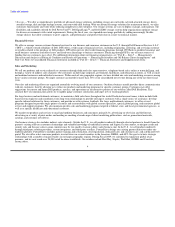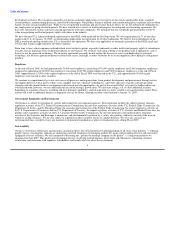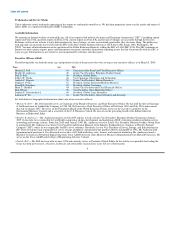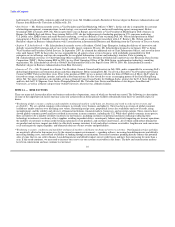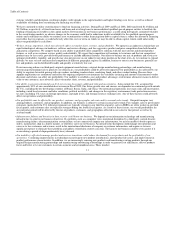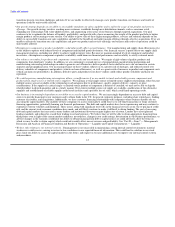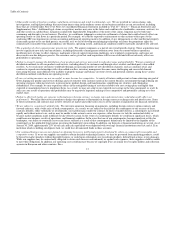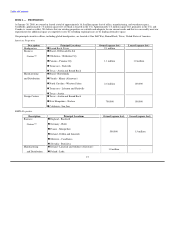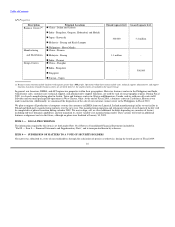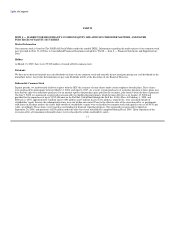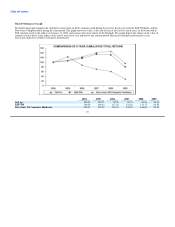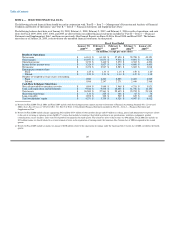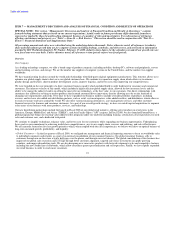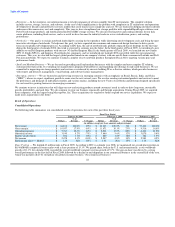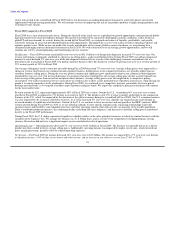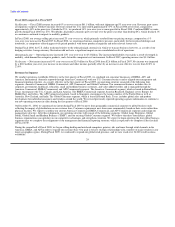Dell 2008 Annual Report Download - page 18
Download and view the complete annual report
Please find page 18 of the 2008 Dell annual report below. You can navigate through the pages in the report by either clicking on the pages listed below, or by using the keyword search tool below to find specific information within the annual report.
Table of Contents
description of potential claims related to copyright levies, see Note 10 of Notes to Consolidated Financial Statements included in "Part II —
Item 8 — Financial Statements and Supplementary Data — Legal Matters — Copyright Levies."
• Our success depends on our ability to attract, retain, and motivate our key employees. We rely on key personnel to support anticipated continued
rapid international growth and increasingly complex product and service offerings. There can be no assurance that we will be able to attract, retain,
and motivate the key professional, technical, marketing, and staff resources we need.
• Loss of government contracts could harm our business. Government contracts are subject to future funding that may affect the extension or
termination of programs and are subject to the right of the government to terminate for convenience or non-appropriation. In addition, if we violate
legal or regulatory requirements, the government could suspend or disbar us as a contractor, which would unfavorably affect our net revenue and
profitability.
• The expiration of tax holidays or favorable tax rate structures, or unfavorable outcomes in tax compliance and regulatory matters, could result in
an increase of our effective tax rate in the future. Portions of our operations are subject to a reduced tax rate or are free of tax under various tax
holidays that expire in whole or in part during Fiscal 2010 through Fiscal 2018. Many of these holidays may be extended when certain conditions
are met, or terminated if certain conditions are not met. If they are not extended, or if we fail to satisfy the conditions of the reduced tax rate, then
our effective tax rate would increase in the future. Our effective tax rate could also increase if our geographic sales mix changes. We are under
audit in various tax jurisdictions. An unfavorable outcome in certain of these matters could result in a substantial increase to our tax expense. In
addition, changes in tax laws (including U.S. taxes on foreign operations) could adversely affect our operations and profitability.
• Current environmental laws, or laws enacted in the future, may harm our business. Our operations are subject to environmental regulation in all of
the areas in which we conduct business. Our product design and procurement operations must comply with new and future requirements relating to
the materials composition, energy efficiency and collection, recycling, treatment, and disposal of our electronics products, including restrictions on
lead, cadmium, and other substances. If we fail to comply with the rules and regulations regarding the use and sale of such regulated substances,
we could be subject to liability. While we do not expect that the impact of these environmental laws and other similar legislation adopted in the
U.S. and other countries will have a substantial unfavorable impact on our business, the costs and timing of costs under environmental laws are
difficult to predict.
• Armed hostilities, terrorism, natural disasters, or public health issues could harm our business. Armed hostilities, terrorism, natural disasters, or
public health issues, whether in the U.S. or abroad, could cause damage or disruption to us, our suppliers or customers, or could create political or
economic instability, any of which could harm our business. These events could cause a decrease in demand for our products, could make it
difficult or impossible for us to deliver products or for our suppliers to deliver components, and could create delays and inefficiencies in our supply
chain.
ITEM 1B —UNRESOLVED STAFF COMMENTS
Not Applicable.
14


